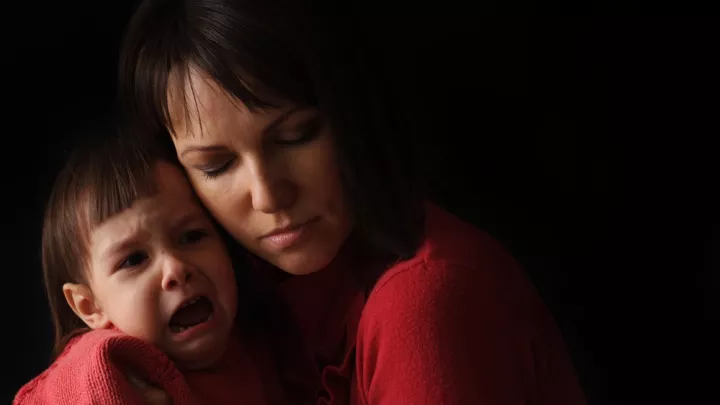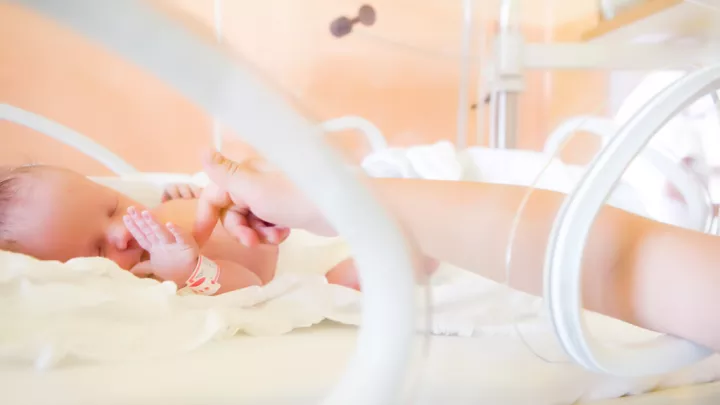What is Infant-Family Mental Health? Your Questions Answered

In March, a generous donation established the Stein Tikun Olam Infant-Family Mental Health Initiative at Children’s Hospital Los Angeles, raised the question: what exactly is infant-family mental health? We caught up with Marian E. Williams, PhD, clinical psychologist and director of the new initiative, to answer a few questions.
We usually associate “mental health” with older teens and adults, but what does mental health mean for infants?
Marian E. Williams, PhD: According to the national organization, Zero to Three, “infant mental health” is “the healthy social and emotional development of a child from birth to 3 years.” Since infants exist in the context of relationships with others, when we talk about “mental health” in an infant, we are considering how their relationships with adults help them to feel loved, protected, safe, and cared for—in fact, we more often use the term “infant-family mental health” to highlight this focus on relationships.
Are there certain children or families that are more at risk for developing mental health issues?
MW: Previous research has shown that experiencing events such as domestic violence, divorce, living with a family member who abuses drugs or has a mental illness during childhood can lead to long-term health challenges, including mental health. An infant living in a stressful home environment can exhibit signs of distress and the beginnings of mental health issues.
Children with developmental delays are also at a greater risk for mental health challenges, as are infants with medical conditions who experience pediatric medical traumatic stress due to repeated, painful medical procedures and extended hospitalization.
How do you assess mental health issues in infants and young children, especially those who are non-verbal?
MW: Infant mental health specialists develop acute observational skills, because young children can’t tell us with words what they are feeling or what they need. By observing other infant cues, such as the tone of their cries, their eye gaze, and their physiological responses and facial expressions, we can recognize signs of stress and observe the infant’s ability to be soothed by others and to self-soothe.
We also observe the interaction between the infant and his or her caregivers. The “dance” of interaction between caregiver and baby tells the story of their attachment relationship. We look for signs such as:
- Can the infant signal in clear ways what he or she needs?
- Is the parent emotionally and physically available to recognize and respond to the infant’s cues?
- Do the parent and child enjoy each other, interacting with joy and playfulness?
These interactions can be observed in everyday activities such as feeding, dressing, changing diapers, holding, and playing.
After you diagnose a mental health issue, what sorts of interventions do you recommend?

MW: When an infant or young child is exhibiting significant mental health or social-emotional challenges, early intervention is critical. The first step is assessment: we carefully evaluate the child’s mental health symptoms and level of distress, the relationship between the young child and his caregivers, the level of support available to the family, and the stressful experiences that the family may have encountered. This assessment then leads to a treatment plan that is developed by various child health experts and the family to focus on their areas of greatest need.
You mentioned earlier that children with developmental delays and/or other medical conditions are at a greater risk of developing mental health challenges. How do you help these kids, whose cases may be more complex?
MW: For children with a combination of conditions, their mental health must be treated in an integrated manner. For example, a child who has experienced a painful medical procedure involving their mouth or digestive track may develop an aversion to eating and be at risk for malnourishment. In this case, our mental health therapists partner with specialists from occupational therapy, nutrition, gastroenterology, and developmental-behavioral pediatrics to develop co-treatment strategies.
In other cases, a child’s severe communication delay may lead to tantrums due to the child’s frustration in trying to communicate their needs. Partnering with a speech-language pathologist enables us to integrate language enrichment activities into the mental health treatment.
What types of “red flag” signs should parents and caregivers look for and when should they seek help for their child?
MW: All infants and young children have periods of time when they are more fussy or irritable than usual. These episodes of distress can result from typical life changes such as a move to a new home, brief illness in the baby or caregiver, changes in daycare, or the birth of a sibling. Extra attention, reassurance, and keeping familiar routines usually helps a baby get back to their usual self within a week or two following these types of changes.
Red flags that a baby may need more help include:
- inconsolable crying
- refusing to eat
- not cuddling
- not smiling when a familiar adult is playfully interacting.
In toddlers, red flags also include:
- severe temper tantrums
- inability to separate from caregivers without extreme anxiety and prolonged distress
- delays in language development
- regression--when a child has reached a developmental milestone and then loses that milestone.
We encourage any parent who is worried to seek help from their child’s pediatrician or reach out to a birth-to-five mental health provider for more evaluation. Parents know their baby best, so if a parent is worried, it is important to explore what may be going on. Often a brief intervention or developmental guidance from a knowledgeable professional is enough to get things back on track quickly.



